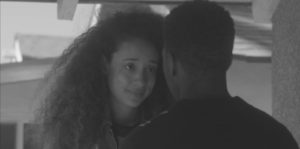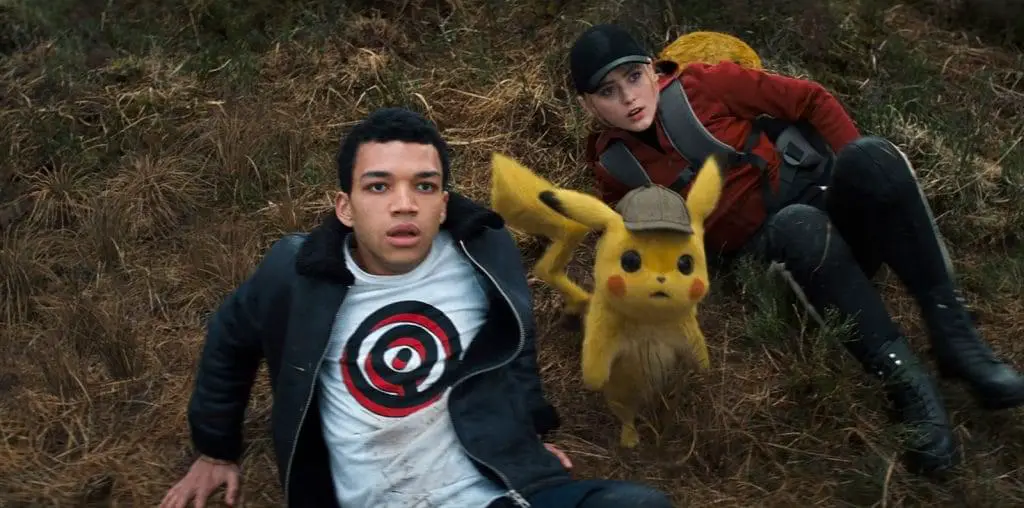
The response you’ve been getting for the film further acts as evidence of the film’s contexts concerning mental health, trauma, and instability. You are now screening the film among academicians and at institutes like Harvard. What kind of response that has been?
Marcellus: You know, what’s interesting now is the fact that we are getting into these self-conferences. I got feedback from the dean at Harvard today. And the film was so well received. You never expect such an impact when you have a university; we call it what it is; a majority of whites are seeing it through the eyes of black people and understanding what they’re going through. They were so astonished because you see these kinds of stories but don’t know them or comprehend them unless they’re presented to you from that exclusive perspective in the cinematic era, the perspective where people get it.
It was stunning to them. And these were not only kids who saw this but adults who were seeing this. It’s a common misconception, like, “Oh, black people got it OK.” You know, there’s been an issue that’s been brewing here for years. So whenever you’re dealing with pissed-off individuals who are taking this objectively and going out and murdering people, getting their anger out, it brings a specific awareness that I think now they’re starting to pick up on. They view this as a severe psychological and societal issue, not only affecting black people but also people in general. The fact that we even have a significant institution like Harvard to want to study tells you that there’s a more critical issue here. So it was even talked about, like this, even having that discussion, was terrific. And now they’ve received it and are using it as a learning tool for their study course as we advance in 2024; it’s pretty incredible.
Rashad, would you like to share how the individual reception to your performance has been in these months?
Rashad: Oh, yeah. My family was shocked seeing me on screen and saying, “Wow, you actually did this?. Do you actually remember all these lines? You actually brought this character on-screen?”. And it’s like a great story with a great message. My family and friends were amazed. Yeah, I’ve got a lot of DMs about it on social media. So from strangers too, just that have seen it, have streamed it, and wanted to tell me about the performance, the story, or the message that came across to them. It’s been great.
David: Yeah, it’s funny. I’ve got friends of mine referencing the scene where Randall is fighting the teacher, and his wife comes out, and he tells her to get back in the house. Friends of mine are just telling me to “get back in the house” now. So, Randall’s one of these guys that I think people love to hate. You know, so if they hate him, I did my part.
Tell me something about the poster. It is intriguing. It has noir elements but a bit of spookiness, given its font and black-and-white shade.
Marcellus: The design came about maybe before we shot the concept short. I wanted something where this young man’s world seemed upside down. When you see it on the poster, you see his picture, and the buildings are flipped up. So that’s just like some of the abstract like his life is surreal. It’s circling in this orbit of hell. That’s what you’re seeing in the actual poster. Then, when we updated it, it’s like the same thing as when you visited the sketch drawing of Mickey with the bandage. We are depicting that guy is going through some serious issues. So that was the whole point of the artwork.
“They view this as a severe psychological and societal issue, not only affecting black people but also people in general.”
When Mickey Hardaway went to these incredible places and reached so many audiences, did you ever think you could get such applause for creating this character study and its use of cinematic art to convey such a strong message?
Marcellus: I felt that it would make an impact in terms of the message, but I never, and I’d be honest with you, in a million years, thought that it would make the impact it made critically. Like, I always felt that we would get some solid reviews, but the way it took off and the fact that it’s as critically acclaimed as the majority of most films you’re seeing right now… it’s fantastic. On that level, I did not see that. So, all of this has been over the moon to me. And the fact that they’ve contacted me asking if I want to see the film just with the general buzz that has been getting was even more of a blessing. So, there are parts of me where I knew the movie would be successful, but not where it eventually ended.
I knew I had a good film with a great cast who killed it. And it was just on me to cut it and put it together because what went on behind the scenes was like, “Oh my God.” Some things worried me, but this is in terms of putting it together. And when I saw the final product, I knew we had a good film. So I expected that. But now are the critical claims.
I also felt that the film is extending its connection from the oppression of the Black community and mental health degradation among Black individuals to gun violence, which is a pressing concern in the States. Is there something you would like to add to that?
Marcellus: That was an actual point to make that this is a more significant issue here, regardless of race or religion, or whatever, that this is a problem in hand, when you have, especially a new generation of people who are not in touch or at home with their emotions. So they react off instincts, as opposed to just having a system around it; even when they have a system around it, they’re just not in touch with themselves; they go through the motions.
That was what I wanted to present in hand when you would see a character like Mickey, who, even when he had the support, wasn’t enough. And that’s what you see in many of these situations. When you’re dealing with each one of these individuals, it’s more than just someone having a mental health issue. It’s a fact that they needed to have the right people on the corner; even when they did, it wasn’t for a long time to co-opt those issues.
I left it from my perspective of not answering; it just shows you what happens in situations. We want to address and discuss it based on observation. So these are all just grave situations regardless of the individual’s race. That’s what I wanted the ending to convey.
David, your character is a generation ahead in the film. From your personal life experience, do you draw any observation that resonates with the themes of racism and gun violence that you found in the film?
David: I didn’t see racism as an issue in this film. You know, even though Rashad, Mickey’s work is stolen by a guy who happens to be white. Yeah. You know, that happens all the time, regardless of color. It happens to people all the time. So, I never looked at that as a racial thing. I just viewed it as a powerful, greedy, money-hungry thing.
The gun violence, though, yeah. I remember years ago, it was like one of the first school shootings. It was years ago; two young boys shot their classmates, and I’ll never forget it. I was in Nashville, and I’d gone there with some friends, staying with a host at a hotel downtown. We were playing pool in the game room, and this father came in; he had two little boys with him and asked if those kids could join us in the game. And we were like, sure, go ahead. Later, we found out that they were among the victims of that shooting at the school where those other two boys started shooting. Back then, it just blew my mind to think that somebody would take a gun and just start shooting at a school. And sadly, today, when it happens, it feels that it hasn’t changed; the issue is still persistent.
You know, something’s got to be done about this gun violence; whether people say it does or doesn’t, it absolutely does, you know. The whole thing about. Is it a gun issue, or is it a, you know, a mental issue? It’s somewhere in the middle, and people must meet to figure it out. Something to solve this; otherwise, we’ll just lose people.


